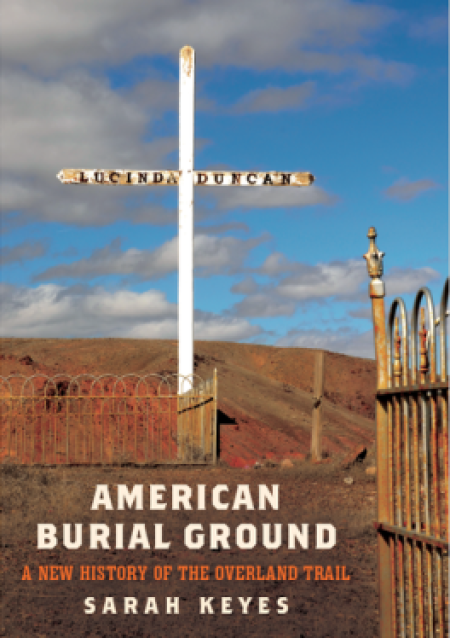
American Antiquarian Society
185 Salisbury Street
Worcester, MA 01609
United States
In popular mythology, the Overland Trail is typically a triumphant tale, with plucky easterners crossing the Plains in caravans of covered wagons. But not everyone reached Oregon and California. Some 6,600 migrants perished along the way and were buried where they fell, often on Indigenous land. As historian Sarah Keyes illuminates, their graves ultimately became the seeds of U.S. expansion.
By the 1850s, cholera epidemics, ordinary diseases, and violence had remade the Trail into an American burial ground. In subsequent decades, U.S. officials and citizens leveraged Trail graves to claim Native ground. Meanwhile, Indigenous peoples pointed to their own sacred burial grounds to dispute these same claims and maintain their land. Sarah Keyes places death at the center of the history of the Overland Trail and, in doing so, offers a sweeping and long overdue reinterpretation of this historic touchstone.

Sarah Keyes is an assistant professor at the University of Nevada, Reno. Keyes is a historian of the United States, specializing in the nineteenth century and the history of the U.S. West. Her research has been supported by a number of institutions including the American Council of Learned Societies, the Mellon Foundation, and the American Antiquarian Society. She was a Kate B. and Hall J. Peterson Fellow in 2010-2011.

